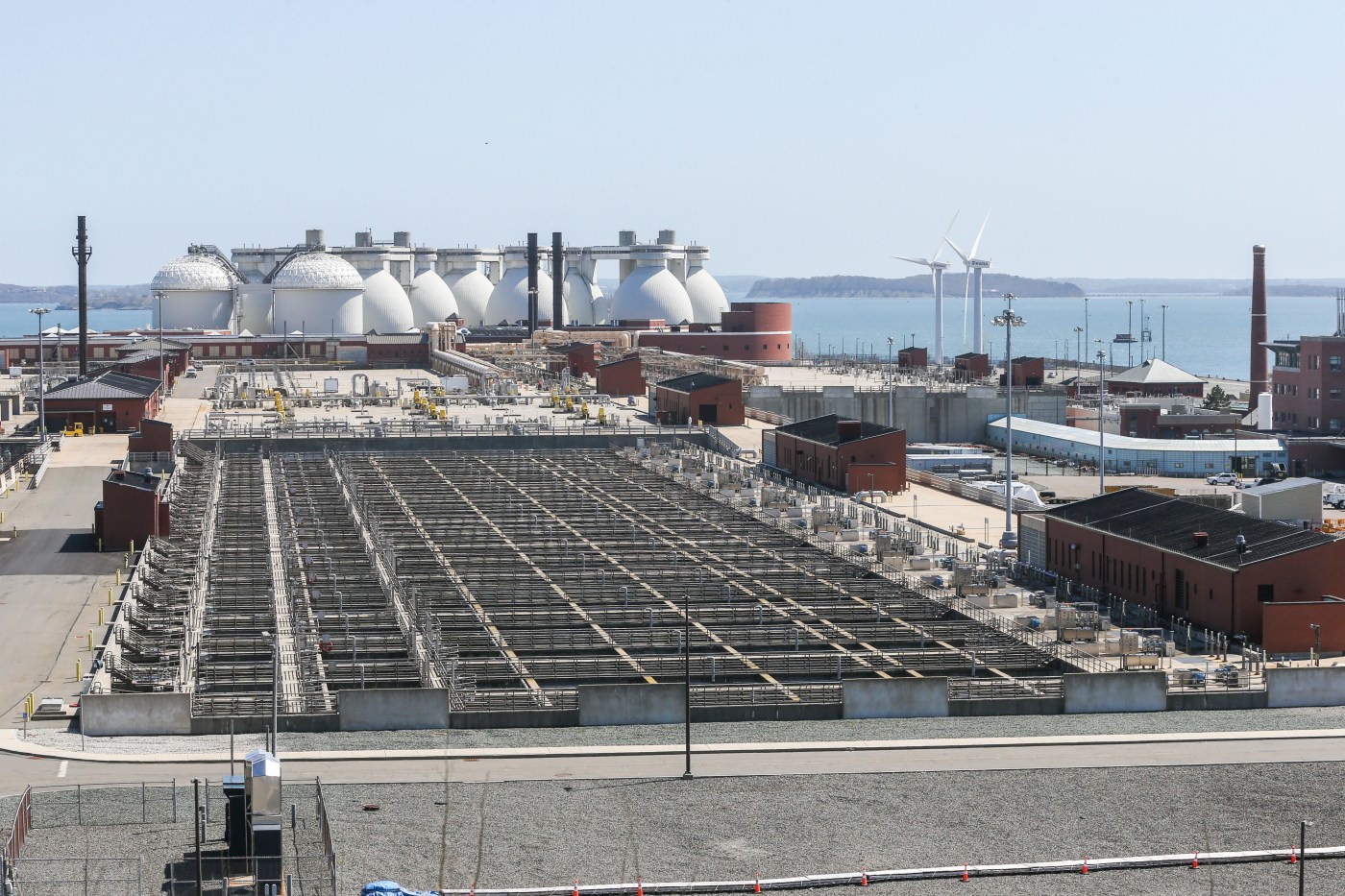
Boston-area COVID wastewater levels surge; a nasal spray may protect against COVID infection: Dana-Farber researchers
The COVID wastewater levels continue to spike after the holidays as a new variant quickly spreads, while local researchers have found that a nasal spray might protect against COVID infection.
The Boston-area COVID wastewater data has surged to its highest levels in two years, when the omicron variant had taken over.
Now, the JN.1 variant is the dominant strain circulating across the region, leading to higher COVID case counts as reflected in the virus wastewater data.
The south-of-Boston COVID wastewater weekly average recently spiked to 2,583 copies per milliliter, which was double from mid-December. The north-of-Boston average had gone up to 2,743 copies per milliliter — triple from mid-December.
These virus wastewater levels are the highest they’ve been since January of 2022 amid the omicron surge. That’s when the wastewater data hit their highest ever levels, and the Massachusetts Department of Public Health reported record-high case counts.
The JN.1 variant now accounts for 62% of variants, a jump from 44% in a previous weekly report from the CDC.
Related Articles
Congressional leaders take step to avert shutdown
Boston-area COVID wastewater data spikes: A ‘concerning’ jump in Massachusetts cases as doctors urge people to get vaccinated
Mass General Brigham bringing back mask mandate, as Boston-area COVID wastewater surges and infections rise
Rift over when to use N95s puts health workers at risk again
Dana-Farber brings back mask mandate, Massachusetts COVID cases jump 21% as new variant JN.1 spreads before the holidays
Meanwhile, researchers at Dana-Farber Cancer Institute in a new study discovered a novel compound that protects against infection by the virus that causes COVID.
If the compound is effective as a nasal spray in a human clinical trial, it could be the basis for a new drug to prevent or treat COVID — a possible gamechanger, especially for people with weakened immune systems.
“This approach has the potential to fill an important gap in our arsenal against COVID-19 and other viruses that cause severe respiratory and hemorrhagic diseases,” said Loren Walensky, physician and principal investigator of the Linde Program in Cancer Chemical Biology at Dana-Farber/Boston Children’s Cancer and Blood Disorders Center.
“Imagine being able to protect yourself from COVID-19 or other disruptive respiratory viruses with a simple nasal spray that you could use to avoid infection at a large gathering or after exposure to a close contact who turns out to test positive for SARS-CoV-2,” Walensky added. “That is the promise this work holds, not only for otherwise healthy individuals, but especially for immunocompromised patients who remain most at risk of severe infection.”
The compounds, called stapled lipopeptides, successfully deterred infection by the SARS-CoV-2 virus and reduced the severity of COVID in tests with hamsters.
The researchers have now launched a human clinical trial to check out the compound’s effectiveness as a nasal spray in humans.
Because such compounds foil a mechanism used by many types of viruses to enter and infect cells, stapled lipopeptides may also be effective against dangerous and potentially deadly viruses such as RSV and Ebola.
“Although vaccines, monoclonal antibodies, and small molecule drugs have played a crucial role in protecting people from life-threatening COVID-19 infection, there remains a critical gap in the treatment arsenal,” Walensky said.
“The constant evolution of the virus and the emergence of new variants has markedly decreased the effectiveness of immune-based approaches, requiring periodic reformulation of vaccines,” Walensky added. “What has been missing are fast-acting, easy-to-administer, and resistance-proof agents that can be used before or after exposure to the virus to directly prevent infection or reduce symptoms. Our study is an encouraging indication that stapled lipopeptides offer that potential.”
Researchers at Dana-Farber Cancer Institute in a new study discovered a novel compound that protects against infection by the virus that causes COVID. (Dana-Farber Cancer Institute photo)


